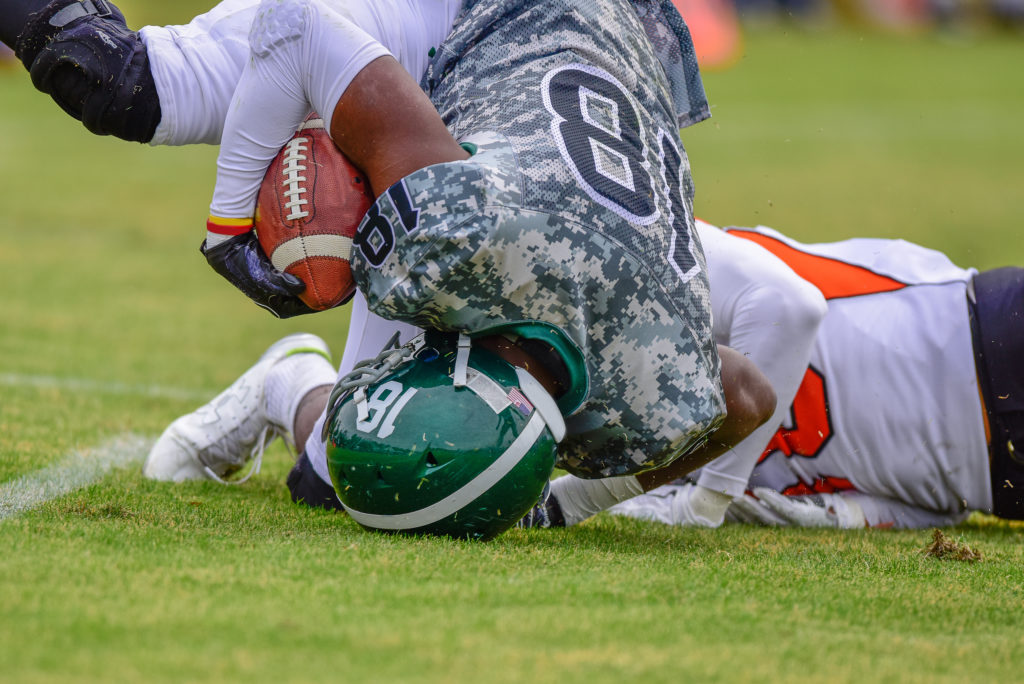
We hear all kinds of things from our clients, coaches, trainers, the public and other healthcare practitioners when talking about concussions and concussion management. Because new research is coming out so quickly on concussion, there have been many changes and advancements in recent years in how concussions should best be managed and treated. At the Balance + Concussion Center, we feel that our job is to educate as much as we can to change the concussion conversation and get us all on the same page. The quotes below are actual documented statements we have heard from clients, parents, trainers and coaches in the past year, along with our response of how we can educate the public to change to conversation.
Concussions and Loss Of Consciousness
“My doctor said that because I wasn’t knocked out it wasn’t a big deal.”
Often because of how concussions are portrayed on television and in the movies, we wrongfully assume that having a concussion means you have to have a loss of consciousness. 90% of individuals with concussion DO NOT experience a loss of consciousness. A concussion can still occur when an individual remains alert throughout the entire incident. Should someone have any loss of consciousness following a suspected concussion, no matter how brief, they should be seen immediately in an emergency room for a full evaluation.
Reporting Symptoms and Repeated Injuries
“I don’t even know how many concussions I’ve had. I stopped counting.”
“I know I’ve had more than this concussion but I never told anyone about them.”
“I didn’t want to tell my coach about it.”
We need to work together to create an environment in which our youth athletes, coaches, parents, employers and employees are supportive of concussion recovery and concussion management. A concussion is an injury that can happen with any activity, just like an ankle sprain or a broken bone can happen. They should be treated and managed like any other injury. We take the time to properly rehabilitate these orthopedic injuries, and we need to do the same with concussion.
Concussion management does not mean stopping sports - it means helping injured athletes recover properly to get back to their sport as soon as possible!
Concussion Management
“My doctor told me to just stay in a dark, quiet room until I felt better.”
“I didn’t know that something could be done to help me.”
“My doctor gave me a note to get out of school for a few days but that was all.”
“I felt fine a few days later so I went back to playing.”
“Don’t you think we are overdoing it with this concussion stuff?”
There is a lot of research being conducted on concussion. Along with that, concussion management protocols are continuously being updated. Treating a concussion years ago meant staying in a dimly lit room with nothing to do until all of your symptoms went away. That is no longer the case. In fact, we are learning that this technique can actually prolong recovery! Now, a short period of rest is recommended followed by a supervised, gradual return to activity. This would include modifications for school or work. The recovery process should be continuously updated and managed by a concussion specialist who can function as a coordinator of care for you, working with the school, employer, etc., to keep everyone on the same page.
Just as delaying return to activity can prolong symptoms, getting back to sports and activities too soon can prolong symptoms and risk Second Impact Syndrome. An athlete should never just return to sport without first being able to handle all normal daily activities, including school, without any onset of symptoms. The athlete should also be supervised through a gradual return to play program in which the intensity of activity is incrementally advanced.
Some people say that we are overdoing it with concussion management. Not every athlete who gets bumped in the head or collides with another player gets a concussion. This is quite true. But, is it worth risking long term complications with your brain, or your child’s brain? We don’t think so.
We want to continue the concussion conversation with you! Contact us any time with your thoughts and questions!